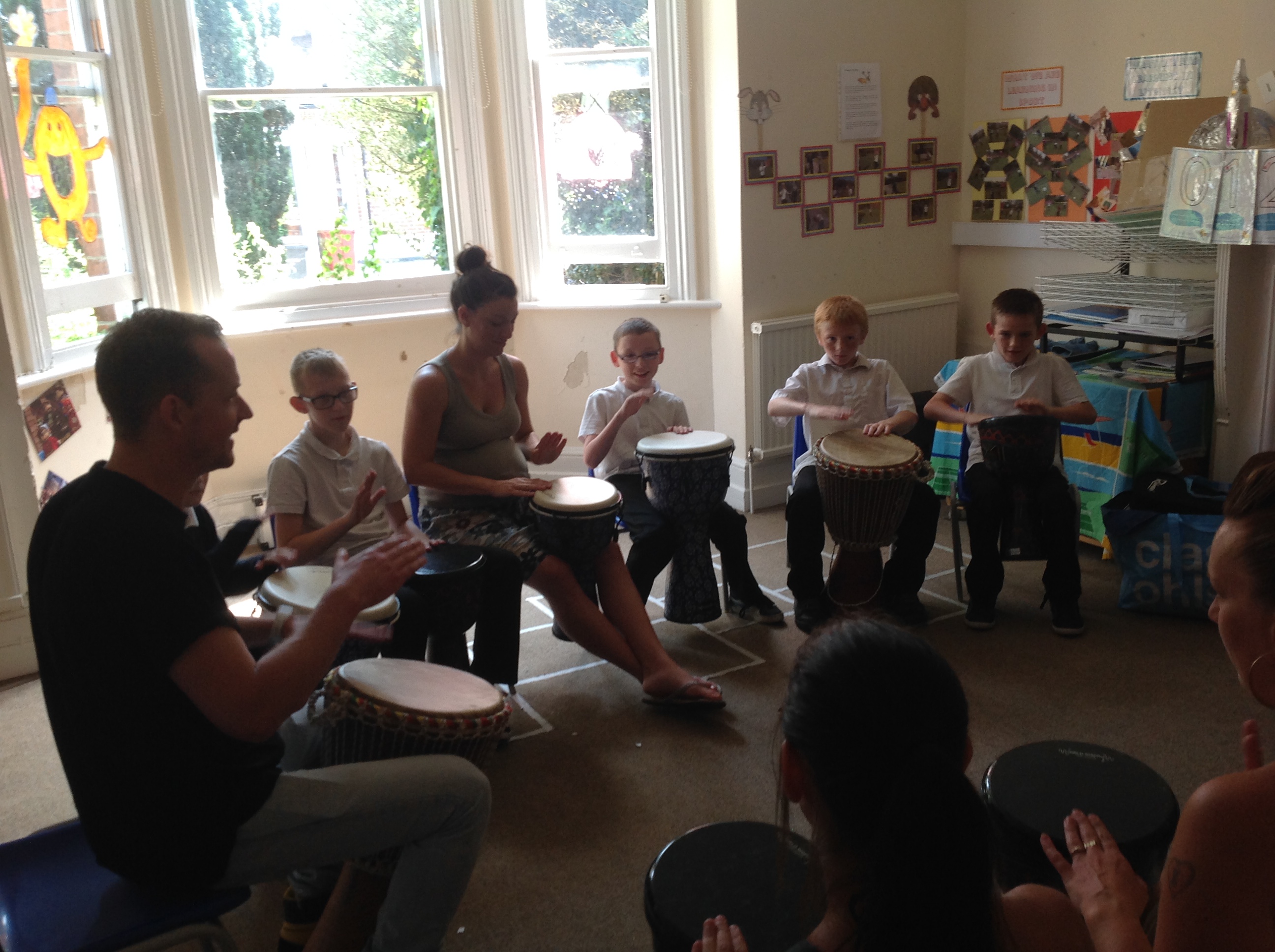Context:
The project worked with a primary school pupil referral unit, with young people excluded from mainstream education, most of the young people are male, and all of the centre staff female.
Cranbury Primary had identified that they would like to do some work with Readipop. This decision was based on the positive results seen in the work Readipop has been doing with Cranbury College (secondary PRU provision in Reading).
The delivery team was based on what the college thought the pupils would be interested in, so focussed on those with skills predominantly in drumming/percussion and music tech.
The music leader had previously undertaken Arts Award advisor Discover/Explore training supported by Readipop but had not yet successfully delivered an Arts Award.
Approach: Sessions took place weekly in school time, in small groups of 4 – 5 young people.
Sessions focused on Music workshops, they were run as a range of taster sessions.
- Ukulele
- Djembes/Cajons/Bongos – general hand percussion
- Drums
- Music tech on iPads
Once the taster were complete the young people selected which activities they enjoyed the most and were able to follow up sessions and some songwriting.
The young people worked towards a sharing morning for parents where they played a piece of music, they then did a group activity where the young people (supported by the music leader) taught their parents a rhythm on the djembe drums.
The music leaders took video of the young people doing activity and talking about their arts awards, however there was not enough of this to complete their
Portfolio evidence.
Readipop provided all equipment for the session to take place.
Sessions planning was done in advance of the project, where the music activites were mapped out. This was then revisited on a weekly basis reflecting on what had happened in previous sessions.
Each session lasted 45-60 minutes.
Issues arising, improvements and advice:
- Some young people found noise challenging, so the school had to work hard to encourage them to take part in sessions.
- Children wanted a wider variety of instruments/activities.
- Music Leader had not successfully delivered any Arts Awards before.
- Some of the young found it hard to follow instructions and focus enough to create a piece of art.
- There was a level of misunderstanding over who was responsible for evidence gathering and exactly what evidence was required. This resulted in there being insufficient evidence or the young people to gain their Arts Award. Additionally Cranbury Primary is only a short term provision so none of the young people returned the following term meaning it wasn’t possible to deliver extra session ad get the required evaluation.
Impact:
None of the young people achieved Arts Award.
The school is only a short term provision so difficult to know the exact impact on the young people involved. However the school wanted to follow up with a second Arts Award project (phase two) and is now in negotiation about a third, getting ready to make it a regular feature of their curriculum.

